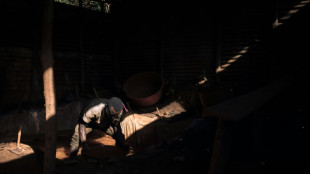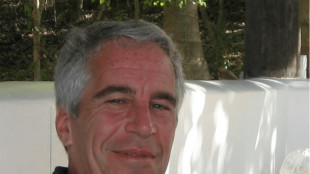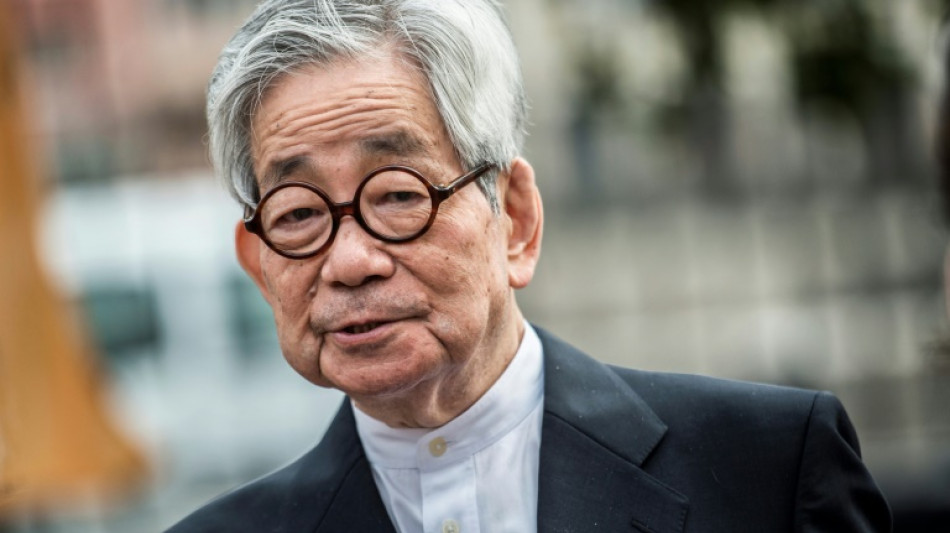
-
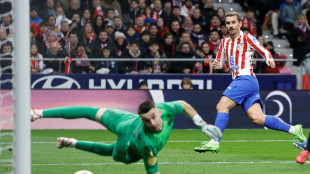 Atletico rout Barca in Copa del Rey semi-final first leg
Atletico rout Barca in Copa del Rey semi-final first leg
-
Arsenal held by Brentford to offer Man City Premier League title hope

-
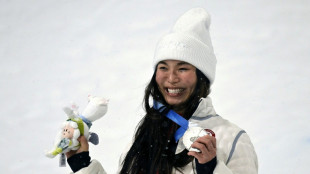 US snowboard star Kim 'proud' as teenager Choi dethrones her at Olympics
US snowboard star Kim 'proud' as teenager Choi dethrones her at Olympics
-
Chloe Kim misses Olympic milestone, Ukrainian disqualfied over helmet

-
 Tech shares pull back ahead of US inflation data
Tech shares pull back ahead of US inflation data
-
'Beer Man' Castellanos released by MLB Phillies

-
 Canada PM to join mourners in remote town after mass shooting
Canada PM to join mourners in remote town after mass shooting
-
Teenager Choi wrecks Kim's Olympic snowboard hat-trick bid
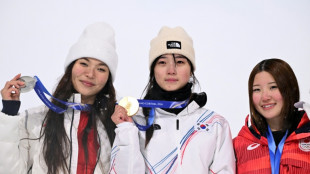
-
 Inter await Juve as top guns go toe-to-toe in Serie A
Inter await Juve as top guns go toe-to-toe in Serie A
-
Swiatek, Rybakina dumped out of Qatar Open
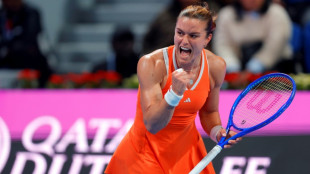
-
 Europe's most powerful rocket carries 32 satellites for Amazon Leo network into space
Europe's most powerful rocket carries 32 satellites for Amazon Leo network into space
-
Neighbor of Canada mass shooter grieves after 'heartbreaking' attack

-
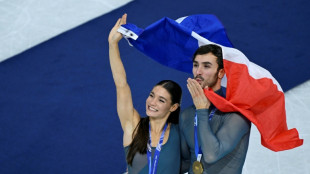 French Olympic ice dance champions laud 'greatest gift'
French Olympic ice dance champions laud 'greatest gift'
-
Strange 'inside-out' planetary system baffles astronomers

-
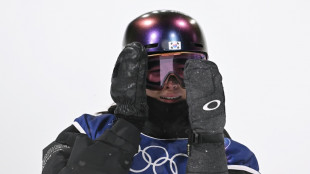 Teenager Choi denies Kim Olympic snowboard hat-trick
Teenager Choi denies Kim Olympic snowboard hat-trick
-
Swiss bar owners face wrath of bereaved families
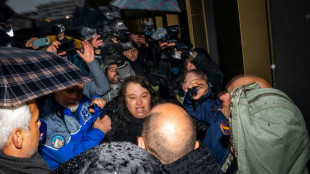
-
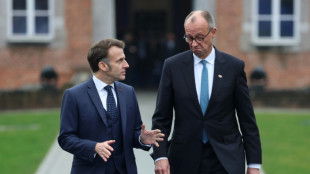 EU vows reforms to confront China, US -- but split on joint debt
EU vows reforms to confront China, US -- but split on joint debt
-
Rubio heads to Munich to heap pressure on Europeans
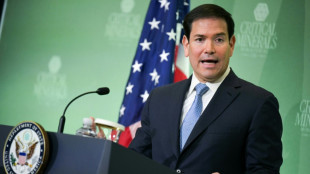
-
 Less glamour, more content, says Wim Wenders of Berlin Film Fest
Less glamour, more content, says Wim Wenders of Berlin Film Fest
-
What is going on with Iran-US talks?
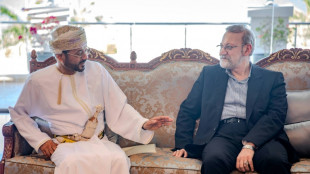
-
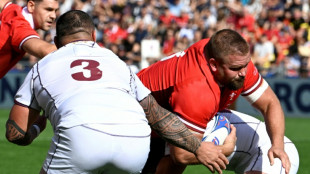 Wales 'means everything' for prop Francis despite champagne, oysters in France
Wales 'means everything' for prop Francis despite champagne, oysters in France
-
Giannis out and Spurs' Fox added to NBA All-Star Game
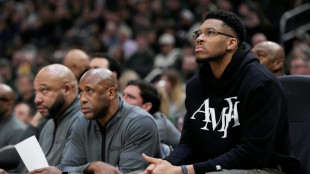
-
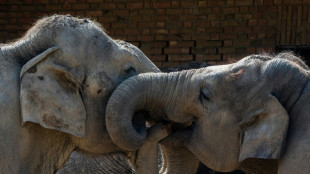 The secret to an elephant's grace? Whiskers
The secret to an elephant's grace? Whiskers
-
Chance glimpse of star collapse offers new insight into black hole formation
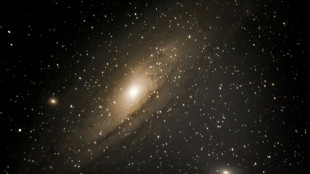
-
 UN climate chief says 'new world disorder' threatens cooperation
UN climate chief says 'new world disorder' threatens cooperation
-
Player feels 'sadness' after denied Augusta round with grandsons: report
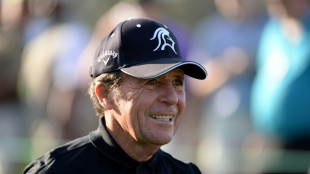
-
 Trump dismantles legal basis for US climate rules
Trump dismantles legal basis for US climate rules
-
Former Arsenal player Partey faces two more rape charges
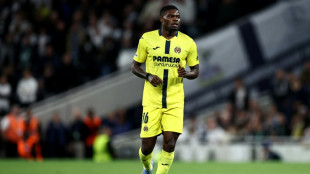
-
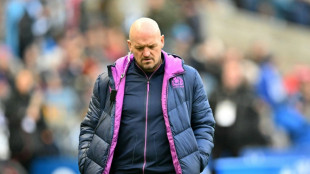 Scotland coach Townsend adamant focus on England rather than his job
Scotland coach Townsend adamant focus on England rather than his job
-
Canada PM to visit town in mourning after mass shooting

-
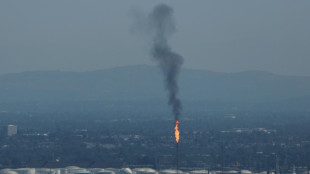 US lawmaker moves to shield oil companies from climate cases
US lawmaker moves to shield oil companies from climate cases
-
Ukraine says Russia behind fake posts targeting Winter Olympics team

-
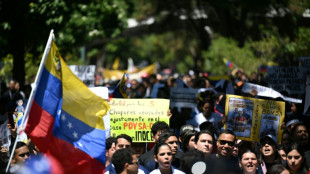 Thousands of Venezuelans stage march for end to repression
Thousands of Venezuelans stage march for end to repression
-
Verstappen slams new cars as 'Formula E on steroids'

-
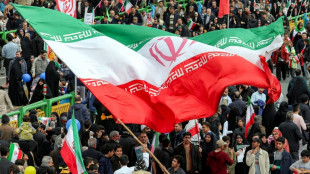 Iranian state TV's broadcast of women without hijab angers critics
Iranian state TV's broadcast of women without hijab angers critics
-
Top pick Flagg, France's Sarr to miss NBA Rising Stars

-
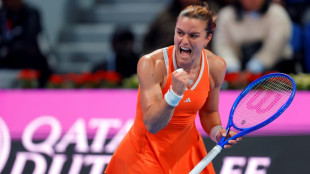 Sakkari fights back to outlast top-seed Swiatek in Qatar
Sakkari fights back to outlast top-seed Swiatek in Qatar
-
India tune-up for Pakistan showdown with 93-run rout of Namibia

-
 Lollobrigida skates to second Olympic gold of Milan-Cortina Games
Lollobrigida skates to second Olympic gold of Milan-Cortina Games
-
Comeback queen Brignone stars, Ukrainian banned over helmet

-
 Stocks diverge as all eyes on corporate earnings
Stocks diverge as all eyes on corporate earnings
-
'Naive optimist' opens Berlin Film Festival with Afghan romantic comedy
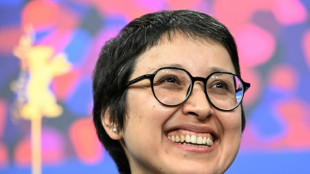
-
 'Avatar' and 'Assassin's Creed' shore up troubled Ubisoft
'Avatar' and 'Assassin's Creed' shore up troubled Ubisoft
-
'Virgin' frescoes emerge from Pompeii suburb
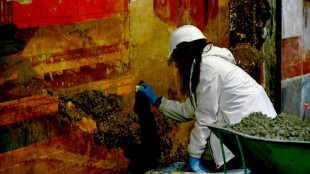
-
 Ukrainian's disqualification from Winter Olympics gives Coventry first test
Ukrainian's disqualification from Winter Olympics gives Coventry first test
-
As Greenland storm passes, US allies focus on stepping up in NATO
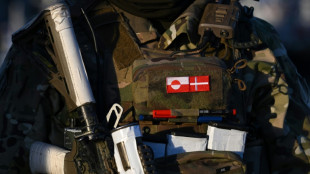
-
 Brignone, the Italian tigress who battled injury into history books
Brignone, the Italian tigress who battled injury into history books
-
Odobert ACL tear adds to Spurs injury crisis

-
 Marseille aim to pick up pieces after De Zerbi departure
Marseille aim to pick up pieces after De Zerbi departure
-
UK nursery worker jailed for 18 years for 'wicked' serial child sex abuse
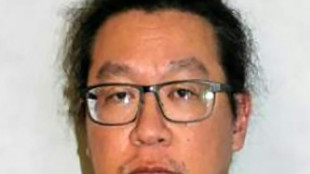

Kenzaburo Oe: novelist who won Nobel with 'poetic force'
Nobel-winning Japanese novelist Kenzaburo Oe, a leading liberal voice who defended the disenfranchised and challenged the conformity of modern society, has died aged 88.
"He died of old age in the early hours of March 3," publisher Kodansha said in a statement on Monday, adding that a family funeral has already been held.
Known for his pacifist and anti-nuclear views, Oe saw himself as part of a generation of writers "deeply wounded" by World War II, "yet full of hope for a rebirth".
His esoteric stories, influenced by French and American literary culture, confronted issues from perceptions of disability to the disconnect between village traditions and big-city life.
"With poetic force (Oe) creates an imagined world, where life and myth condense to form a disconcerting picture of the human predicament today," the Nobel panel said when it awarded him the 1994 literature prize.
Born in 1935, Oe grew up in a forested valley on Japan's western Shikoku island, a remote setting which he frequently evoked in his writing as a microcosm of humanity.
Growing up, his mother and grandmother would recount legends passed down through the community about defiant local uprisings.
But his young life was also marked by the war, with his school days dominated by militarist propaganda.
That all changed after Japan's 1945 surrender, and Oe soon became fascinated by the democratic principles espoused by the occupying US forces.
In his Nobel lecture, the writer described the tensions between the country's indigenous culture and its rapid postwar westernisation.
"Present-day Japan is split between two opposite poles of ambiguity," he said.
"I too am living as a writer with this polarisation imprinted on me like a deep scar."
- Peripheral vision -
Oe left his village to study French literature at the University of Tokyo, immersing himself in existentialist philosophy and Renaissance humanism.
He began writing fiction while still a student, and in 1958 won Japan's prestigious Akutagawa Prize for young authors with "The Catch" -- about a Black American pilot taken captive by Japanese villagers during World War II.
The same year, Oe published his first full-length novel "Nip the Buds, Shoot the Kids", a fable about teenage boys left to fend for themselves after being evacuated during the war.
From the outset, he vowed his work would focus "on the peripheries" of society and promised to never collaborate "with those at the centre of things, who have power", he said in an interview in the mid-2000s.
In 1963, Oe's personal life was upended by the birth of his son Hikari, meaning "light" in Japanese, who has intellectual disabilities.
Writing and living with Hikari are activities which "overlap and enrich each other", Oe said. "It's something that shapes my imagination."
Oe published a series of novels that drew on his family situation, including 1964's "A Personal Matter", in which a troubled young father struggles to come to terms with the birth of his disabled son.
- Anti-nuclear activist -
After Hikari was born, Oe attended an anti-nuclear conference in Hiroshima, where he met survivors of the 1945 attack who, in his words, "never surrendered to any situation".
It strengthened the author's resolve to accept his own family circumstances, and he documented the survivors' accounts in the 1965 essay "Hiroshima Notes".
Oe's anti-conformist stance has at times angered Japanese nationalists, and he was threatened with assault in the 1960s over a novella about a far-right teenage terrorist.
The writer was also sued for defamation over a passage in his "Okinawa Notes" that recounted the forced mass suicide of civilians by the Japanese military. The long trial concluded in his favour in 2011.
In his later years, Oe campaigned ardently against nuclear energy, for the rights of people with disabilities and against the revision of Japan's pacifist constitution.
His staunch ideals also led him to turn down Japan's Order of Culture in 1994, an award ceremonially presented by the emperor.
"I would not recognize any authority, any value, higher than democracy," he explained to The New York Times.
Oe is survived by his three children, including Hikari, who is a successful composer.
O.Salim--SF-PST

